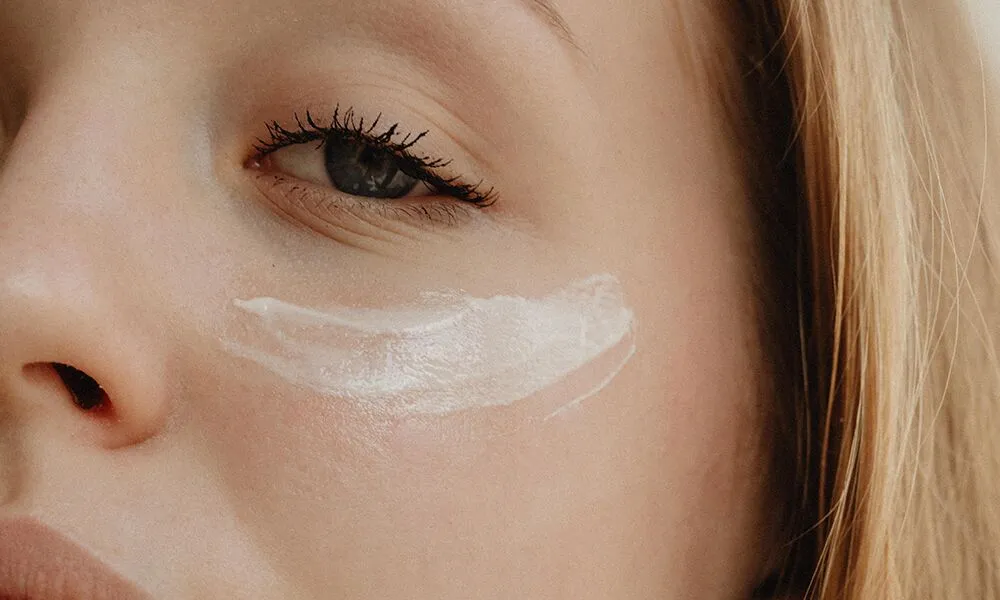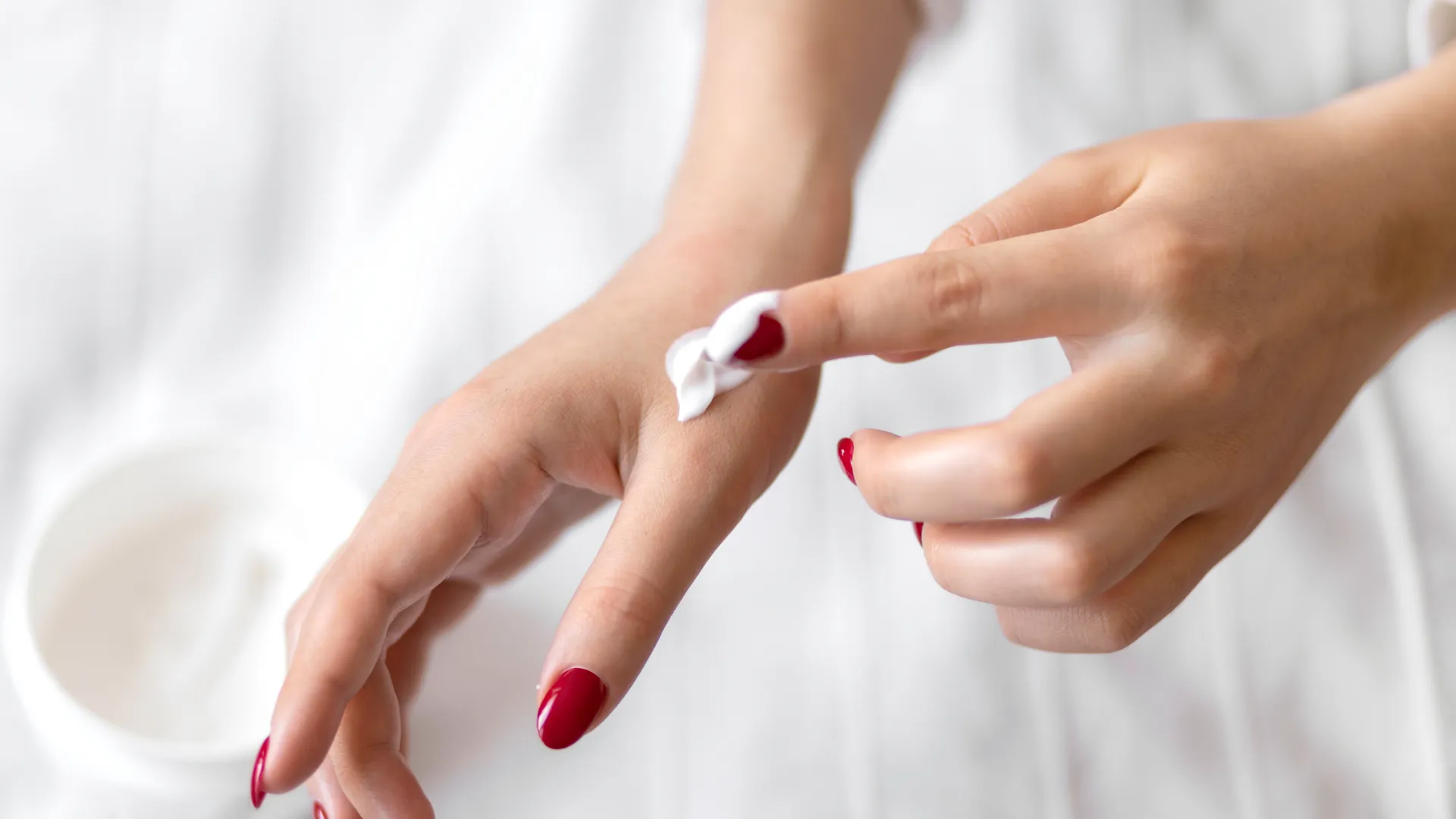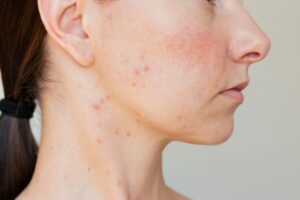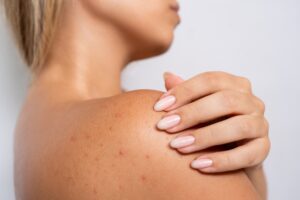Did you know there’s an entire month focused on healthy aging? September has been “Healthy Aging Month” since 1992 (check out this fun timeline).
When you look for information on how to age in healthy ways, you’ll see plenty of advice on reducing your risk for chronic conditions like heart disease and cancer, maintaining mobility, and staying mentally sharp.
You won’t see quite as much information on how to have healthy skin, though. And that’s just as important, since your skin is the body’s largest organ. Just as it is advisable to have an internal exam yearly, people should have an external exam, checking for concerning signs of aging (and skin cancer).
Two Types of Aging
Aging isn’t just accumulating years of life – although that’s one part. Called “intrinsic aging,” we each do it differently based on internal factors and our genes.
Extrinsic aging is also unique to each of us, but much more in our control. This is related to external factors, like sun exposure, pollution, what we drink and eat, how active we are, and stress.
“We can’t control intrinsic aging,” said Dr. Jane Kardashian of Golden State Dermatology in Fresno, “but we can control some of the extrinsic factors to lessen the effects of aging. And the good news is that everything you do for your skin’s health benefits your overall health.”
Actions for Healthy Skin as You Age
Non-negotiable:
Protection. We keep repeating ourselves in an endless loop – you HAVE TO protect your skin from the sun. Even if you’re just walking outside between errands, that counts! And remember the sun’s rays can penetrate windows and clouds, so wear sunscreen every day. For more tips on sun protection, read our blog (and see if you can answer the questions!)
Sleep. The benefits of good sleep include better-looking skin. Sleep gives your body a chance to recuperate and replenish. If you limit this vital function, it has a cascading effect on your health. Not to mention the immediate effect of undereye circles and bags.
Stop/Avoid:
Smoking. Even if you’re willing to risk cancer, the effects of smoking will show up on your skin, making you look older than you really are. It’s the reverse of every skin care procedure and product out there!
Sugar: Have you ever heard that being plump smooths out wrinkles, so it’s a good way to look young? Turns out that’s wrong. Refined carbohydrates speed up aging. Sugar in your blood attaches to proteins in a process called glycation. These newly formed molecules, called advanced glycation end products (or AGEs, believe it or not!), damage nearby proteins, especially collagen and elastin, which help skin stay firm and elastic. Look at what you eat that has added sugar, then aim to limit that to no more than 10 percent of your daily calorie intake.
Add/Continue:
Eat the rainbow. Try to add color to your diet – natural color. Multiple studies show that eating fresh fruits and vegetables may help prevent the cellular-level damage that makes skin look older. Plus, antioxidants are beneficial inside and out!
Movement. We all know about the benefits of exercise for heart health and multiple other types of chronic disease. Turns out it also benefits your skin because it improves circulation and strengthens the immune system. Both of those can help the skin look (and behave) younger.
Good skin care routines. Be gentle with your skin, especially the skin on your face, hands, and neck, which is thinner and more exposed to the elements. Don’t scrub or use harsh abrasives, and always wear sunscreen. And remember what goes on your skin goes into your body, so be alert for ingredients that are linked to health issues, like polyethylene or PEGs.
Hydrate. Drink water (ideally) and if you don’t like drinking plain water, aim for zero-calorie drinks with as few chemicals as possible.
Reduce:
Alcohol. Alcohol dehydrates the skin, which can damage it over time. Dehydrated skin is not only unhealthy, but it will also make you look older.
Stress. Stress is a multi-pronged weapon, meaning it can harm many aspects of your health, including how we age. The good news is that good health habits reduce stress, too, from what you eat to how active you are. The National Institute on Aging has more helpful tips, like keeping a journal and simply being grateful for something every day. The positive can defeat the negative!
If you’re reading this and feeling like it’s too late for you — it’s not! Skin protection counts no matter how old (or young) you are, and eating healthy and staying hydrated actually feels immediately good, besides delivering long-term benefits.
When it comes to aging, we all have different feelings about its effect on our appearance. If you want to explore options to improve how you look — for any reason — a professional dermatologist has multiple options. From microneedling to intense pulsed light to a variety of lasers and even non-surgical facelifts with technology like Scarlet SRF, and topical skin care, talk with your dermatology provider to see what would be best for you, as an individual.






